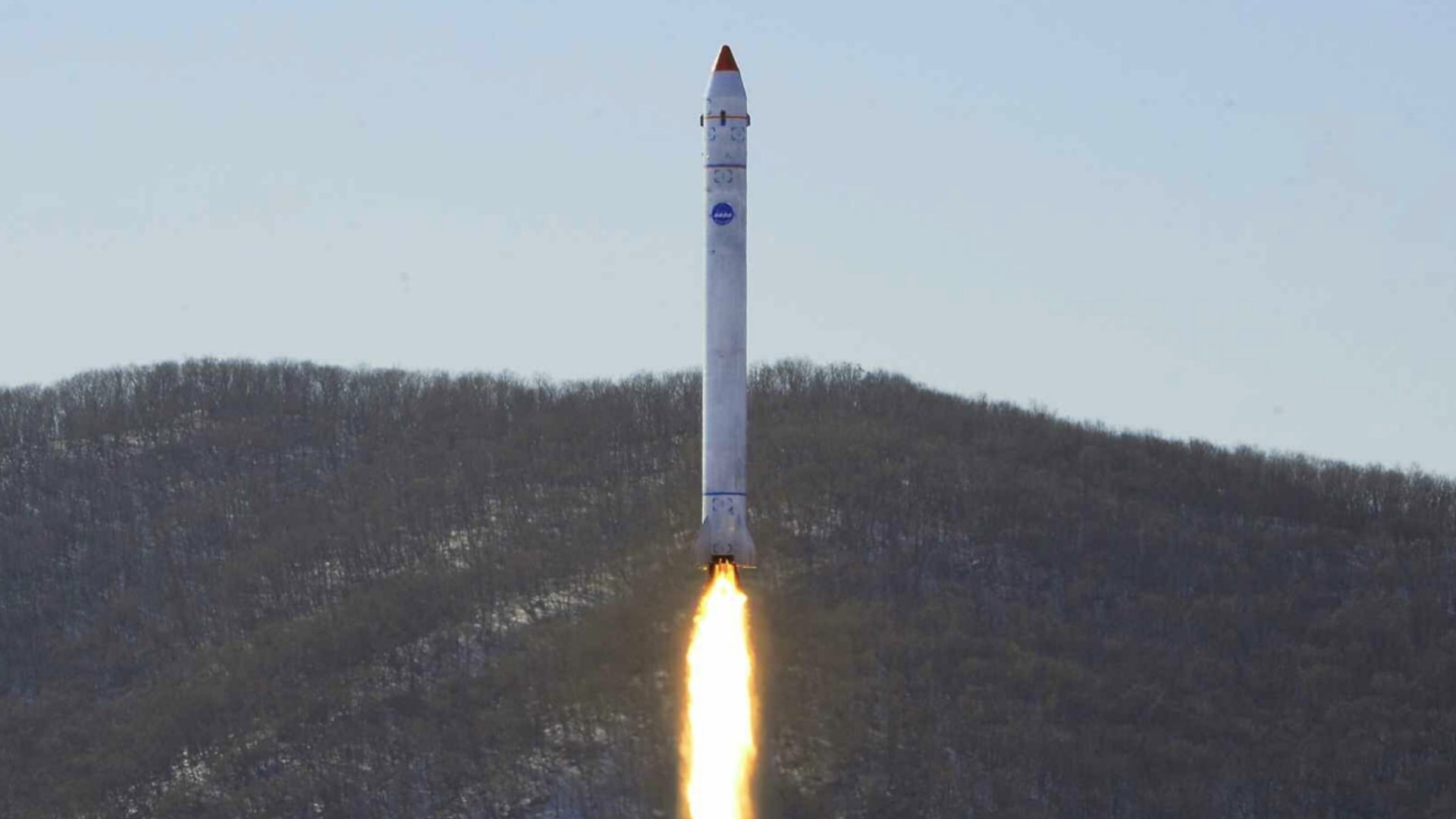
North Korea has lost another satellite.
The reclusive nation failed in its latest attempt to put a spy satellite in orbit after encountering a rocket stage-separation issue. North Korea's Chollima-1 rocket carrying its Malligyong-1 satellite suffered an anomaly during the third stage of its Wednesday (Aug. 23) flight, according to the Associated Press.
During the launch attempt, some Japanese citizens were instructed to take shelter as the North Korean rocket flew over islands near Okinawa. Warnings about this launch came just days ago, when North Korean officials told the Japanese Coast Guard that it was planning a liftoff this week.
Related: North Korea's 1st spy satellite has been pulled from the sea after launch failure: report
This latest failure comes nearly two months after North Korea lost its first Malligyong-1 satellite into the Yellow Sea due to an unknown launch anomaly. The country's National Aerospace Development Administration announced it will make a third attempt in October after it analyzes this latest failure, adding that "the cause of the relevant accident is not a big issue in terms of the reliability of cascade engines and the system," the Associated Press reported.
The South Korean government claims many of the technologies that North Korea used to design its spy satellite were stolen by hacking groups, Reuters reported. Protecting sensitive spaceflight technologies from cyberattacks and theft has become a pressing issue worldwide; just this month, the United States' National Counterintelligence and Security Center (NCSC) issued a bulletin advising private space companies of the threat of intellectual property theft and cyberattacks.
The failed launch comes as the militaries of the United States and South Korea engage in military exercises designed as a show of strength and stability in the face of an increasingly aggressive North.
South Korean President Yoon Suk Yeol, Japanese Prime Minister Fumio Kishida and U.S. President Joe Biden also met this month to discuss a three-way security agreement aimed at strengthening alliances to counter the obstinate North Korean government and its pursuit of intercontinental ballistic missile technology.
North Korea successfully placed a satellite into orbit in 2016 to coincide with the 74th birthday of the nation's late leader Kim Jong-Il, the second supreme leader who ruled from 1994 to 2011. The spacecraft, an Earth-observation satellite called Kwangmyongsong-4, decayed and fell from orbit on June 30, 2023.







